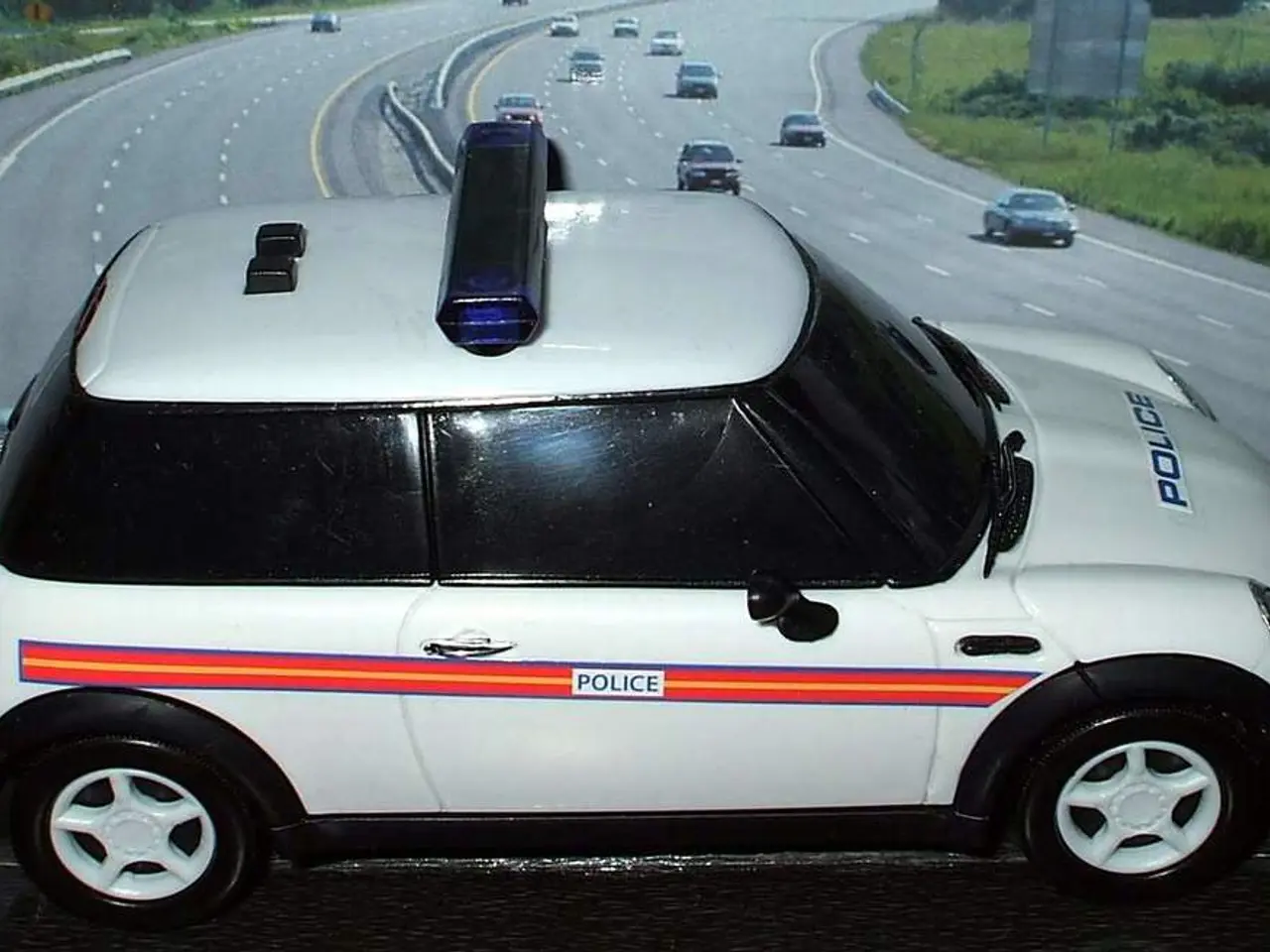Trump sends National Guard to Washington D.C., assumes authority over the local police force
Washington, D.C., the nation's capital, is currently grappling with a complex and contentious crime situation. According to White House data, the city has seen a significant increase in crime, particularly violent crimes such as homicide, with the 2024 homicide rate standing at 27.3 per 100,000 residents[1]. This increase has led President Donald Trump to declare the city a public safety emergency and announce a federal takeover of the D.C. Metropolitan Police and the deployment of 800 National Guard troops[2][3].
However, independent analyses and local officials challenge this narrative. They point out that after a spike in mid-2023, violent crime in the city has shown a large and unmistakable drop since then[3][4]. The crime trends in D.C. are generally aligning with or improving alongside trends in other major cities.
President Trump's claims about a "lawless" D.C. have been disputed by fact-checkers. They note that crime in the city is not out of control compared to similar cities and may even be decreasing recently[2][4].
The deployment of the National Guard to D.C. raises significant legal and practical concerns. The Guard and military forces traditionally avoid domestic policing roles due to risks of excessive force and violations of constitutional rights. The Posse Comitatus Act and legal restrictions limit the president’s power to use military forces for law enforcement[2][5]. Extending federal control over D.C.'s police beyond 30 days requires congressional approval, which is uncertain and subject to political processes[5].
The duties of the National Guard troops include administrative tasks, logistics, transportation, and a "physical presence." At any given time, 100 to 200 National Guard soldiers will support law enforcement. The specifics of the National Guard's "physical presence" in Washington, D.C. are still being worked out[5].
The criteria used by police for stopping and searching someone could change under federal control. This has raised concerns about potential civil liberties issues and tensions given the contentious nature of the federal takeover.
The deployment of National Guard troops in Washington, D.C. is in response to an attempted carjacking involving a former DOGE staffer. The troops may begin patrolling the streets of Washington, D.C. as early as next week. The police department in Washington, D.C. will now answer to Attorney General Pam Bondi instead of the mayor and city council[2].
In summary, while there is evidence of serious crime challenges in Washington, D.C., the narrative of an unchecked crime "epidemic" overstated by the White House and President Trump has been disputed. The militarized response has drawn significant criticism and legal scrutiny. The impact of the Guard deployment is uncertain, and its effectiveness may be limited, potentially raising civil liberties issues and tensions.
Read also:
- Court petitions to reverse established decision on same-sex marriage legalization
- Trump's enforcement actions in Washington D.C.: Insights from the political arena
- Chinese Ambassador issues stern message to India regarding Trump's tariffs in midst of escalating trade feuds
- Aircraft collides with another one on the runway during landing at Montana airport, igniting flames








